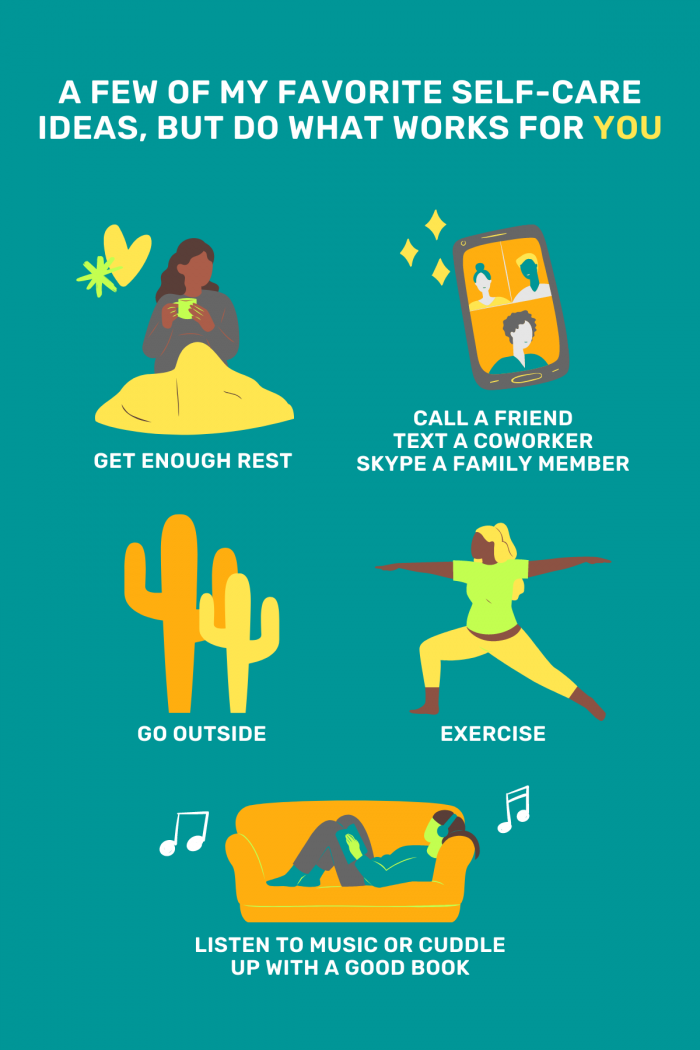Caring For Yourself So That You Can Care For Them
January 25, 2022 |One of the biggest parenting myths is that we lose our identity and rights so that we can meet the needs of our children. The truth, in fact, is the opposite. Not taking care of yourself, not recharging your own batteries, and not taking breaks can make it far more difficult to be a good parent or caregiver.
Let's pretend you broke your leg. Ouch, right? Would you ignore the pain and walk around as if nothing happened? Nope! Not in a million years! Now take that same concept and apply it to your mental health. Your physical and psychological health are equally important. Children rely on us to be their role models and to help them get through difficult times. Through us, they build self-control, thoughts about wellness, and the importance of self-care overall. If you do not care for yourself and protect your own social/emotional needs, you will not be well enough to help your child.

Wait, so what exactly is self-care? Is it eating a quart of ice cream and an entire family-sized bag of Lays while you guzzle down just one more glass of wine? Let's be honest: That's sometimes my go-to version of self-care. But nope! Self-indulgence and self-care are not the same thing. Self-care pushes us to be healthy. Self-indulgence may lead to messier outcomes and behaviors such as binge watching an entire season of The Real Housewives of Salt Lake City in one weekend, overeating, and overdrinking.
It isn't about the quantity of things you do for yourself, which can lead to more stress and that gut-wrenching feeling of guilt. It's about the high-quality, positive effects that your self-care will have on you. True self-care allows you to feel better and tackle responsibilities through better decision making.
Children are like sponges. To learn new social skills, they watch the adults around them. They observe, imitate, and take in any feedback they receive. The more connected to and trusting of the adults around them, the more they learn from them. Being able to demonstrate the ways you want your child to act and respond is crucial for them to learn the importance of their actions.
As a teacher, I learned very early on how important it is to control my own emotions. I always called it my "children's radar" because they easily notice any feeling of insecurity and hesitation. The more I believed in myself and believed that children would behave in appropriate ways, the more they responded. As adults, the calmer we are during difficult moments, the more our children will feel supported, safe, and in control. We cannot always keep them from feeling afraid, anxious, or sad. But we can make it more likely that they will bounce back. Our own actions serve as a life jacket during these moments of stress.
So, what are some things we can do to outfit children with this life jacket?
First, be real with them. Children know when you are inauthentic.
-Tell your child that you need time for yourself and make sure you set boundaries to take this time for yourself.
-Encourage them to observe your methods of calming and re-centering.
-Let them watch you close your eyes and breathe to feel better.
-Allow them to observe you noticing your own feelings and reactions.
Next, support your child emotionally.
-Check in with them about their feelings and perspectives.
-Really, truly listen to them. Not with the intention of what you will say and do to help them, but with the intention of trying to understand them.
-Offer them extra love and support when they are struggling.
Remember, witnessing you care for yourself will teach a child to identify their own needs and take care of them. This will set up a life-long practice, which will keep them healthy throughout their lives. Self-care not only teaches children to care for themselves and react positively to challenging situations, but it can also help them develop empathy. If you practice these habits alongside children, you will both benefit.

Any experienced parent or caregiver will tell you that it never gets easier - it just changes. And by tending to your own needs, you help yourselve and everyone around you... including the little ones.
Not sure where to start? Here is a self-care quiz to assess and identify the items that you can focus on first.
- Caring For Yourself So That You Can Care For Them - January 25, 2022

